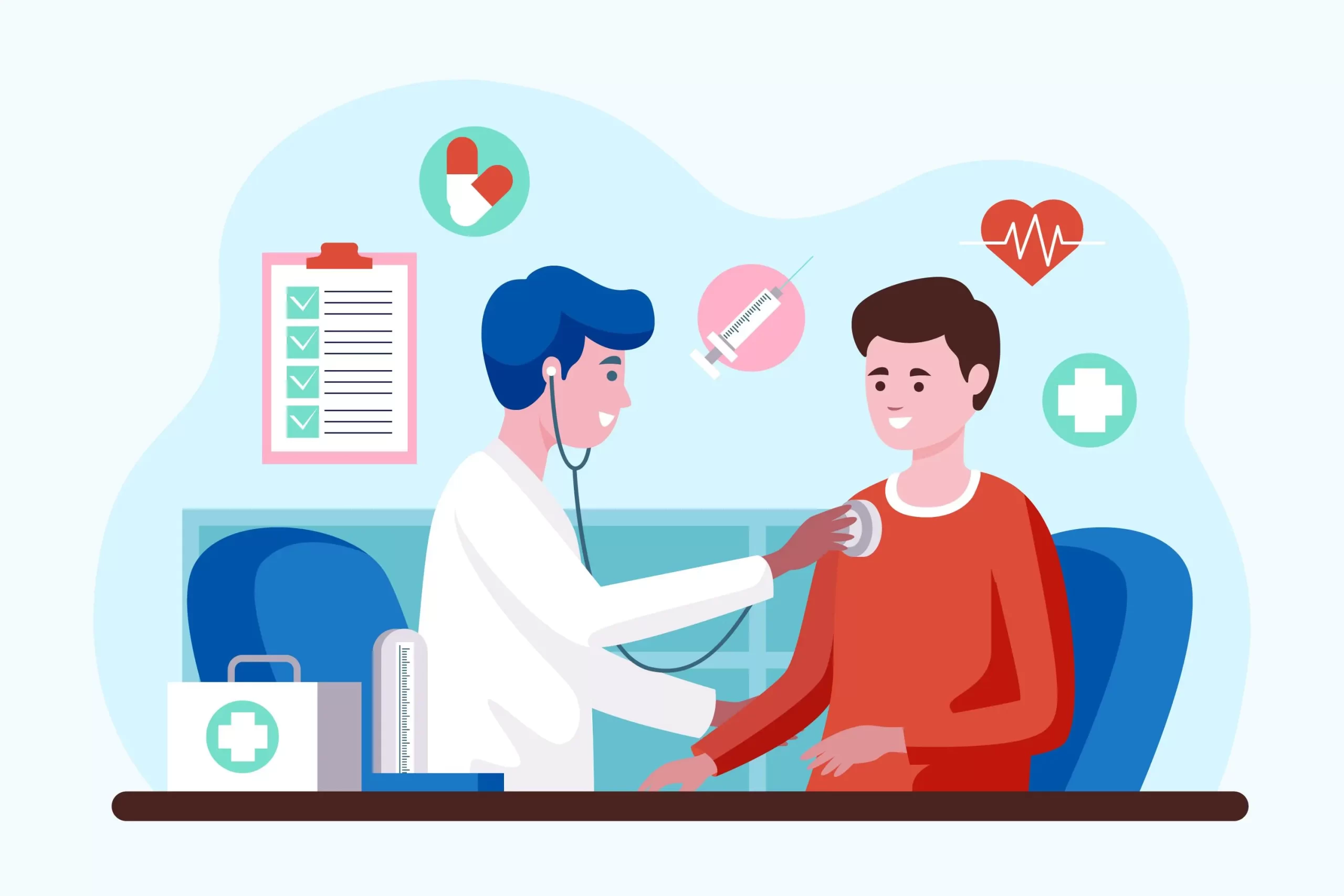Healthy living involves various factors, such as staying active and eating right. Besides these activities, one key element often overlooked is regular health checkups. Not only do these checkups help manage your overall health, but they also ensure proper steps are taken to avoid severe issues in the future. This blog will cover the importance of medical checkups and their impact on daily life.

Explanation of Regular Health Checkups
By definition, regular health checkups consist of scheduled and systematic evaluations by a doctor to analyze the patient’s well-being. This may include physical exams, blood work, and other necessary procedures to ensure everything works perfectly.
These are not solely meant to treat existing ailments but also as preventive health examinations. Early detection is considered the most crucial aspect of medical checkups, as they are designed to tackle problems so they can be treated more efficiently.
Why are Regular Health Check-ups Important?
People, on the other hand, tend to ignore one crucial aspect of health that requires medical professionals’ attention, which is why medical experts suggest you see a doctor regularly. Here are a few reasons why regular health checkups need increased attention.
- Early Detection Of Diseases
Perhaps the most critical importance of medical checkups is the possibility of identifying diseases before they develop entirely.
Not many people catch that their health, blood pressure, diabetes, or even cancer has serious issues. Not many know that everyday checkups help confirm timely treatment.
2 . Prevention is Always Better
Using routine diagnosis, your doctor can detect risk factors that can escalate to draw out heart issues, thus letting you implement changes in lifestyle. This alone highlights why treating an already prominent illness or disease is more complex and expensive.
3. Avoiding Alters and Monitoring Chronic Conditions
If back pains or headaches are persistent, it is best believed that it’s most likely due to chronic diseases such as arthritis and diabetes. Regular checkups can help your doctor control these and improve your quality of life.
5 . One’s Perception Of Health Is Now Clear
Such measures go beyond true. Surveys show that people aren’t aware of their mental stress levels. During a checkup, your doctor has the authority to assess your mind and let you know what action to take if necessary.
6 . Promotion of Health Defects In The Body
Headaches or back pains are never a good sign, and doctors and everybody need to know when they need help. Keeping track of your health through routine visits means you open your receptors to make better life choices.
What Happens with a Regular Health Checkup?
The checkup process begins with your doctor looking at your body and inquiring about your medical history. The following procedures are pretty standard:
- Physical examination– Important measurements like weight, height, blood pressure, and pulse.
- Blood exams– Checking cholesterol levels, sugar, and other vitals.
- Screenings– Tests for cancer, osteoporosis, or vision problems based on your age and sex.
- Lifestyle review– A statement from your doctor regarding your diet, exercise, sleep, and stress.
- Vaccines– Providing boosters by requirements.
These are a few of the checks for risks related to your health issues and squarely sensitive areas related to your overall wellness.
How Frequent Should You Go for Checkups?
As it touches regular health checkups, their frequency relates to someone’s age, lifestyle, and medical history. Here’s a general guide.
- Children and Teens: checkup monitoring should be done once a year.
- Young to Middle-aged adults 20-40 years: Expect to be seen at least once every two to three years if you’re healthy and more often if you have risk factors.
- Older adults 40 and above: An annual appointment is encouraged to monitor the possible onset of regular diseases like high blood pressure or diabetes.
Discuss with your physician for personalized suggestions and make arrangements for your appointments based on your health status.
The Consequences of Avoiding Regular Health Checkup
You may save costs or time for a day when you do not prioritize regular health checkups, but the outcome in the future is devastating. Health problems that remained untreated in the past can become severe and lead to invasive and costly procedures.
Consider these examples:
- High BP that remains unchecked can be the reason for a stroke or a heart attack waiting to happen.
- Diabetes that is not diagnosed can lead to kidney or eye issues.
- Not having cancer checkups done can result in missing an early detection that could make treatment less complex and less aggressive.
As much as you may despise sitting long in a doctor’s office, remember that they are there to treat you so you do not have to waste time or, even worse, lose your life later.
Suggestions for Health Checkup Optimization
These will ensure that your regular health checkups serve the intended purpose:
1. Be forthcoming with your doctor
Discuss relevant medical history, symptoms, and lifestyle. That way, the doctor can provide a reasonable and appropriate diagnosis.
2. Make note of all questions on paper
Jot down any questions regarding your well-being so you do not forget anything.
3. Do not ignore any recommendations given
If you are instructed to do tests or take medication, it is imperative that you follow through.
Active steps after your checkup are essential for your well-being.
4. Keep a Record of Your Health
Monitor your test results, vaccinations, and medications. This will help your doctor assess your improvement over the years.
Regular Checkups are Beneficial to Health
So far, you’ve learned the importance of regular health checkups. Now, let’s see what is crucial regarding them.
- Early Detection– Identifying the disease at the earliest is very helpful for treatment.
- Better Prevention– Knowing risk factors will help protect you from serious health issues.
- Enhanced Living Standards– Keeping track of your health status alongside routine checkups enables you to stay ahead.
- Less Medical Spending– Caring for one’s health in advance is significantly cheaper than fixing it later when it’s more advanced.
- Mental Comfort– Being familiar with your health gives you a sense of control, thus lowering your anxiety levels.
Conclusion
It is crucial to highlight the importance of medical checkups as much as possible. Staying in tune with your body requires regular health checkups, which are important for everyone, not just those who are feeling unwell.
So, schedule your next checkup today because caring about your health should be your priority. Investing just a bit of your time now can uplift your entire future.
Begin your journey toward a healthier life by getting constant health checkups and soothing your mind with the feeling of being in control of your health.


